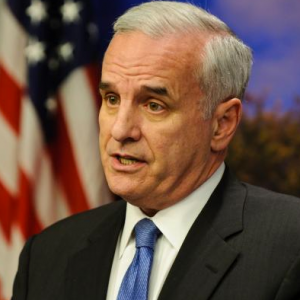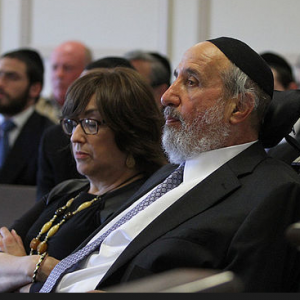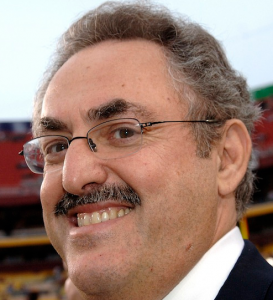I’m not a great NFL offensive line talent evaluator, but I’m told a player named J.C. Tretter has had himself a fine eight-year career as an NFL center.
At the same time, the center position just happens to be a chronic weakness of the Vikings. First round draft choice Garrett Bradbury has been a huge disappointment, which particularly limits their passing game and endangers their skittish franchise quarterback. The Vikings don’t appear to have a good Plan B to replace Bradbury.
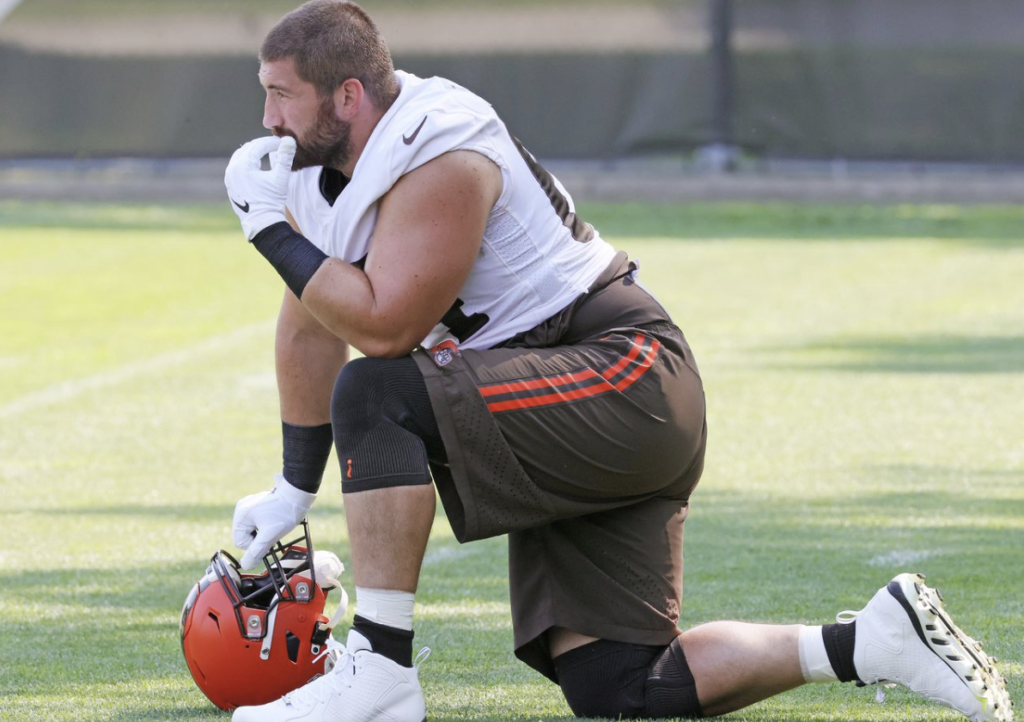
The good news, it seemed, was that Mr. Tretter had interest in coming to Minnesota. But alas, according to Sports Illustrated (SI) the interest was not reciprocated by the Vikings’ front office:
The former Browns center, one of the best, most durable players at his position over the past five seasons, had interest in playing football in 2022. After being released by Cleveland in the spring, Tretter and his representation looked around to see if they could find him a new team in free agency. He told Sports Illustrated’s Alex Prewitt that his list of ideal destinations included the Panthers, Cowboys, and Vikings. Tretter cheered for the Vikings as a kid and felt that playing for them would “put a bow on (his) childhood.”
Despite having a major need at center due to Garrett Bradbury’s struggles, the Vikings apparently never returned his call. They declined to comment for the SI story. Minnesota wasn’t the only one, though; per the story, “none of the seven teams that his camp contacted reciprocated his interest.”
So Tretter, feeling at peace with his career, announced his retirement on Thursday.
Now, I’m certainly open to the possibility that Tretter was too beat up to play any more, though he denies that. But why wouldn’t the Vikings, or any other NFL team, at least conduct a physical and do some diagnostic scans? That refusal to even investigate his health just doesn’t pass the smell test.
I’m also open to the possibility that Tretter, at the ripe old age of 31, had no more gas in the tank. But offensive lineman frequently pay well into their thirties, and just last year Tretter still had plenty of game left in him, according to statistics compiled by Cleveland Browns blogger Barry Shuck.
With the 2021 season, Tretter played 1,038 snaps and allowed only one sack. His Pro Football Focus grade this past year was 78.7 and was ranked the #6 center out of 39 candidates.
So what could have caused an accomplished veteran like Tretter to get the cold shoulder from the Vikings and every other NFL team’s front office? Some, such as Tretter’s former teammate Joel Bitonio, make a very convincing case that Tretter, an Ivy League (Cornell) graduate, has been effectively blackballed by the NFL because he was an outspoken two-term President of the NFL Players Association (NFLPA), the labor union that represents players in negotiations with the NFL’s billionaire owners on issues such as pay, benefits, workplace conditions, racial equity, health, and safety.
“When you have a guy that’s top-five, top-10 at center in the league and he’s not on a roster, you know, and he’s the NFLPA president and maybe some of the owners don’t appreciate what he brings to the table on certain topics when he’s trying to protect player safety and things of that nature, it seems a little suspicious to me,” Bitonio said, via Mary Kay Cabot of the Cleveland Plain Dealer. “But, again, I don’t know what’s going on behind closed doors. I don’t know what his conversations have been with teams and stuff, but just from an outside perspective usually players that are close to the top of their game get picked up. Teams want to win in this league. So it’s an interesting topic, for sure.”
Mike Florio, an attorney and NFL analyst for NBC, profootballtalk.com, and KFAN radio in Minnesota, agrees that it is very possible:
Would it be crazy to think that owners are shying away from Tretter because he has become an agitator to the oligarchs? Nope. That’s another reason why high-profile (and highly-compensated) quarterbacks should be more involved in union leadership. They’re far less likely to be blackballed, and they’re far more likely to take command of the rank and file if/when a line must be drawn in the sand — even if it means a work stoppage.
For now, it makes sense to pay attention to what happens with Tretter. If the goal is to keep him out of the league because he helps run the union, ignoring it makes it easier for the owners to pull it off.

Keep in mind, the NFL and the Vikings have a history here. As I have written on this blog, there are strong arguments that both the Vikings and the NFL engaged in blacklisting others — racial equity champion quarterback Colin Kaepernick and gay rights champion punter Chris Kluwe — who dared to speak their minds about what the NFL considers to be “political issues.”
Interestingly, NFL Commissioner Roger Goodell had no concerns with former Vikings center Matt Birk, who was an outspoken advocate of banning abortion long before he started his gaffe-filled run in Minnesota politics. Birk’s position could have been considered by the NFL to be “controversial,” given that surveys show that two-thirds of the nation opposes banning abortion.
But the NFL not only didn’t blacklist Birk, it hired him as a top executive, Director of Player Development, after his playing career was done. The NFL owners’ political leanings are in full view here.
Again, keep in mind, when the analytics publication Pro Football Focus (PFF) ranked the top half of centers in the NFL, they put Tretter near the very top, at number five. PFF didn’t even list the Vikings current starter Garrett Bradbury in the top half of options.
Yet Bradbury, who Vikings Head Coach Kevin O’Connell continues to question, will be the Vikings starter again this year, and Tretter apparently can’t even get his phone call returned by the Vikings front office.
The Vikings’ billionaire owners Mark and Zygi Wilf love to assure long-suffering fans that they will do whatever it takes to bring a Super Bowl Championship to Minnesota, the state that paid half a billion dollars for a sports palace that has caused the value of the Wilf’s NFL franchise to skyrocket by over a billion dollars.
Unless, apparently, that means employing players who advocate for racial, gay, and worker rights.

 I don’t usually bother writing anything about sports, or sports writing. That’s because as marketplaces for hot takes and punditry go sports is at least as glutted as politics … but without the saving grace of relevancy to something more important than mere entertainment and distraction.
I don’t usually bother writing anything about sports, or sports writing. That’s because as marketplaces for hot takes and punditry go sports is at least as glutted as politics … but without the saving grace of relevancy to something more important than mere entertainment and distraction.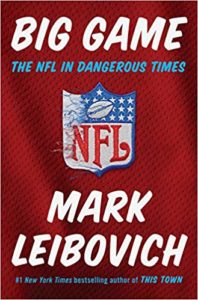 He came to mind often as I inhaled the latest book by New York Times writer, Mark Leibovich. Normally
He came to mind often as I inhaled the latest book by New York Times writer, Mark Leibovich. Normally  The 120,000 Minnesota small donors who heroically pulled together to pool an
The 120,000 Minnesota small donors who heroically pulled together to pool an 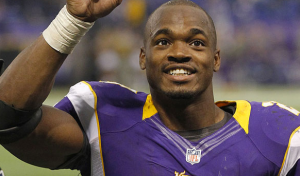 As I
As I  I hope that Adrian gets awesome help from great parenting coaches, so that he can learn that abusing his children is abusing his children. Not “tough love.” Not “discipline.” Not “good parenting.” Abuse. It’s an overused cliche, but the first and most important step in fixing a problem really is admitting a problem.
I hope that Adrian gets awesome help from great parenting coaches, so that he can learn that abusing his children is abusing his children. Not “tough love.” Not “discipline.” Not “good parenting.” Abuse. It’s an overused cliche, but the first and most important step in fixing a problem really is admitting a problem. Next Sunday’s game looks to be a proud moment for the storied Minnesota Vikings franchise, and, by association, all Minnesotans.
Next Sunday’s game looks to be a proud moment for the storied Minnesota Vikings franchise, and, by association, all Minnesotans.